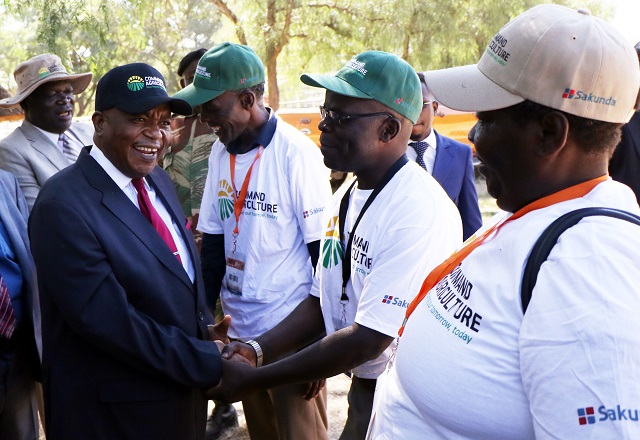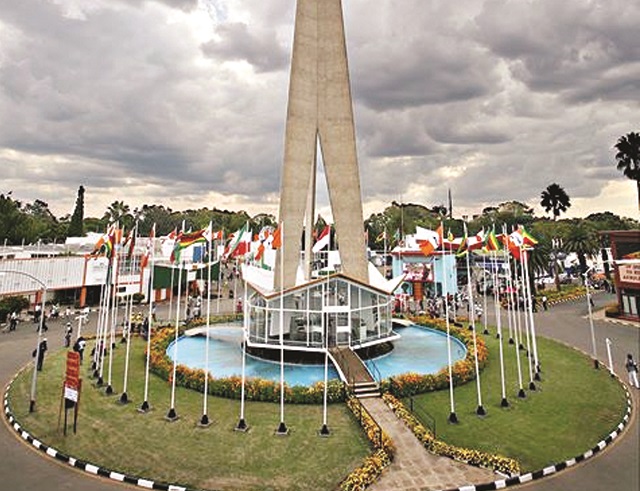Zim needs $1,7bn for retooling annually


Vice President Constantino Chiwenga congratulates Matabeleland North and South farmers who were presented with heifers under Command Livestock at the ZITF in Bulawayo yesterday. (Picture by Eliah Saushoma)
Oliver Kazunga, Senior Business Reporter
ZIMBABWE’S industrial sector needs over $1.7 billion annually to retool plant and equipment to stimulate production in the manufacturing sector.
This emerged yesterday during the Confederation of Zimbabwe (CZI) and ZITF Company-organised original equipment manufacturers’ conference in Bulawayo, where captains of industry held intense discussions on the need to adopt latest technology and replace antiquated equipment.
Infrastructural Development Bank of Zimbabwe (IDBZ) chief economist Dr Khutula Sibanda said funding has in the past been evading the country due to a poor macro-economic environment.
“The World Bank estimated in its recent study that we need above $1,7 billion per year for retooling industries and over the next two decades around $33 billion. So this is the gap that we have as a country,” he said.
As a result of the existing funding gap for industrial infrastructure retooling, Zimbabwe’s exports across all value chains were subdued because capacity utilisation in the manufacturing sector was uncompetitive.
The CZI has noted obsolete equipment as one of the key factors derailing efforts to increase capacity utilisation to competitive levels. A CZI manufacturing sector survey report released in 2017 indicated that capacity utilisation slid to 45,1 percent from 47,4 percent in 2016. Dr Sibanda said it was imperative for Zimbabwe to improve its country risk profile to unlock fresh lines of credit from external development finance institutions.
“The global recommendation can be at political level, reverse that risk perception. I am encouraged by the current new dispensation, which is actually committed towards reversing all these negative perceptions about the country,” he said.Since the coming into power of a new political order in November 2017, the country has been re-engaging the international community to improve its relations after close to two decades of global isolation.
Dr Sibanda noted that a stable macro-economic environment encourages savings, which would enhance the mobilisation of long-term funding for export retooling and infrastructure.
“A stable macro-economic environment minimizes investment risk such as current risk, liquidity risk, price escalation risk and profitability risk, and all these are considered by domestic and international financiers.
“If there is a retooling project, which is accompanied by these risks, then you are assured that you will not move any step forward,” he said, adding that generally a stable macro-economic environment with proper governance improves investment appetite by investors.
Earlier in his address, Industry, Commerce and Enterprise Development Minister Dr Mike Bimha said the Government was working on mechanisms in support of retooling by industries. He also said Government had come up with other industry support provisions such as the waiver of duty on capital goods as well as allowing businesses to have a three-month deferment of Value Added Tax.
In an interview, CZI president Mr Sifelani Jabangwe said the total amount required by industry to retool, though significant, would also see businesses becoming more competitive in light of the envisaged huge foreign direct investment.
“The total package required for refunding is significant but the returns are also huge because some of the companies are looking for those amounts so that they can finance equipment export that will see them boosting exports, improve the quality of their products and reduce their production costs,” he said. — @okazunga.











Comments